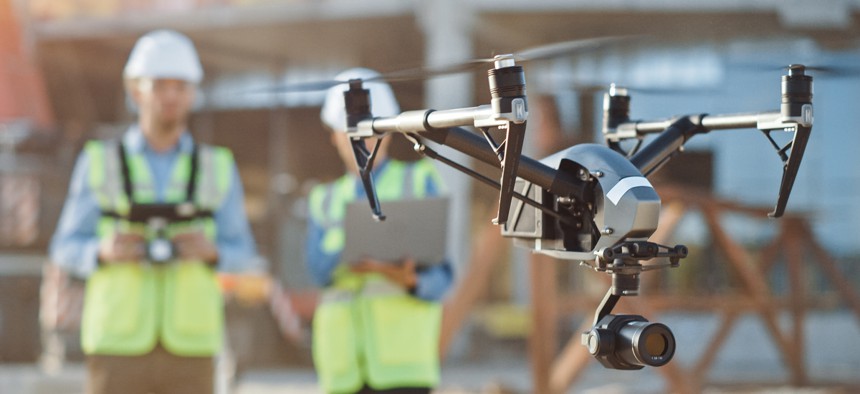Trump Takes Executive Action on Drones in Final White House Days

Gorodenkoff/Shutterstock
The executive order encourages federal agencies to divest from unmanned aerial systems manufactured by China, Russia and Iran.
In the final days prior to his departure from the White House, former president Donald Trump issued his last slate of pardons and executive orders, including one directing federal agencies to abstain from procuring unmanned aerial systems—drones—manufactured by adversarial nations including China, Russia and Iran.
“It is the policy of the United States, therefore, to prevent the use of taxpayer dollars to procure UAS that present unacceptable risks and are manufactured by, or contain software or critical electronic components from, foreign adversaries, and to encourage the use of domestically produced UAS,” the Jan. 18 executive order reads.
The action is the latest in a series of developments related to UAS. Earlier this month, the Pentagon released a new strategy outlining how the department plans to counter small UAS. The C-sUAS strategy will be accompanied by an implementation plan, which Defense officials said is set for release by the end of this month. Like the executive order, the C-sUAS strategy describes Russia, China and Iran as threats when it comes to drones.
The Federal Aviation Administration also recently published two important UAS rules in the Federal Register: One outlines permitted drone operations, including above people and at night, and the other mandates that all UAS requiring FAA registration must be able to remotely identify themselves.
Rooting adversaries out of supply chains and critical infrastructure was a focus during the Trump administration as well. For example, DOD recently launched a digital marketplace created to connect vetted capital with innovative technology companies in order to crowd out adversarial investment dollars.
Newly-inaugurated President Joe Biden was set to sign his own roster of executive orders late Wednesday, many of which reverse Trump policies. Most of these actions deal with pressing issues such as the coronavirus pandemic. The fate of Trump’s UAS executive order under the new administration remains to be seen.
In addition to encouraging the government to use domestically produced drones, the UAS order also requires the heads of all executive departments and agencies to conduct a review and submit a report to the director of the Office of Management and Budget describing any actions taken to halt the spending of federal dollars on covered UAS.
The order also requires agency directors to submit a report to the director of National Intelligence and the director of the Office of Science and Technology Policy within 60 days of signing, “describing the manufacturer, model, and any relevant security protocols for all UAS currently owned or operated by their respective agency, or controlled by their agency through a third party, such as a contractor, that are manufactured by foreign adversaries or have significant components that are manufactured by foreign adversaries.”
And within 180 days of signing, the DNI along with the defense secretary, the attorney general, the homeland security secretary, the OSTP director, and the heads of other appropriate agencies are required to review these reports and describe to the president any security risks present in the current fleet of federal drones. This report to the president is also required to detail steps taken to mitigate these risks.
“...[I]ncluding, if warranted, discontinuing all Federal use of covered UAS and the expeditious removal of UAS from Federal service,” the executive order reads.






